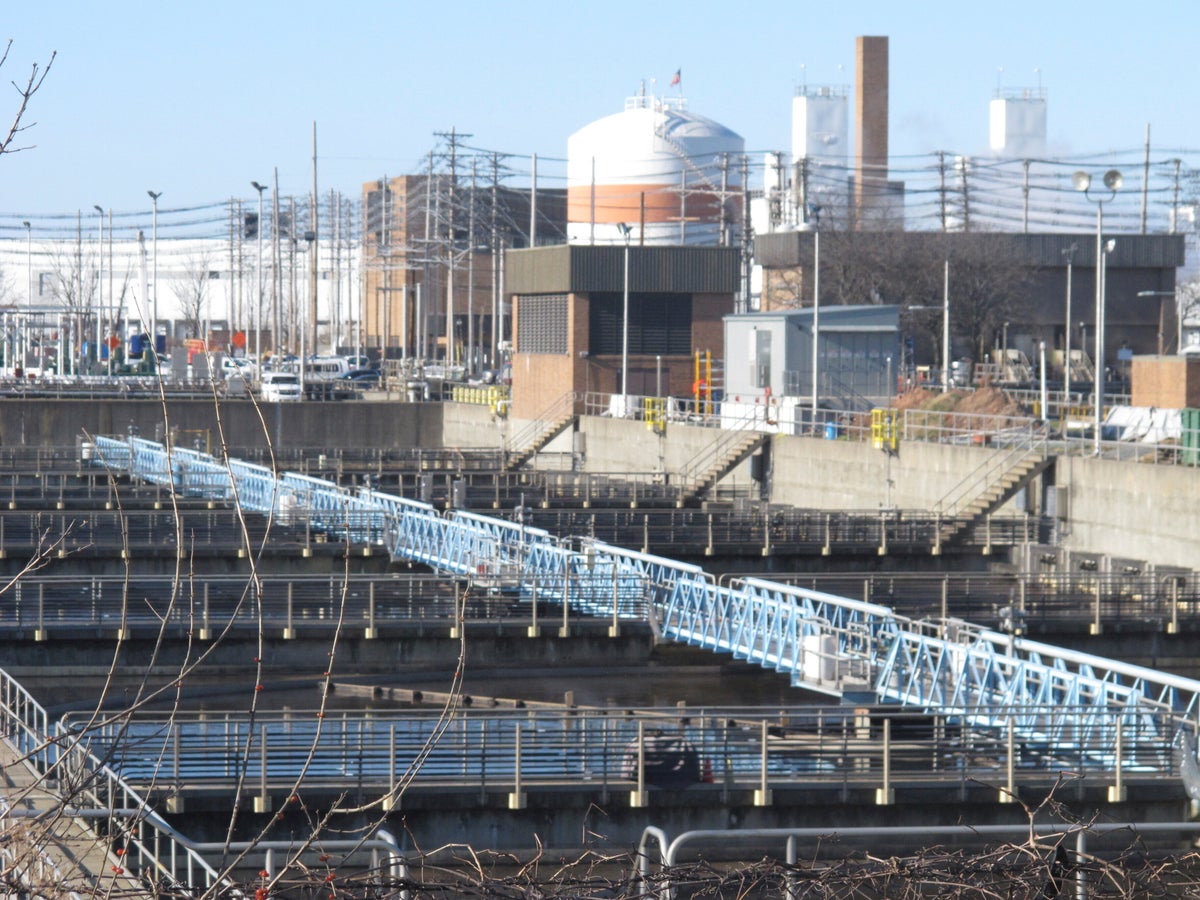
Support truly
independent journalism
In the first major decision issued under an environmental justice law designed to prevent additional sources of pollution in already overburdened communities, New Jersey will allow construction of a backup power plant at one of the country's largest sewage treatment facilities.
The facility dumped some 840 million gallons of raw sewage into waterways when Superstorm Sandy knocked out electricity in 2012.
Anticipating the fury of environmental and community activists who have fought the project, Shawn LaTourette, the state's environmental protection commissioner, said his department will require the new facility to use solar panels and battery storage to ensure a net decrease in pollution.
The decision tries to thread the needle between two of New Jersey’s big priorities: protecting the environment, and keeping certain communities from being overburdened with pollution, particularly those where a majority of the population is made up of people of color. That second goal is part of an environmental justice movement taking aim at such projects nationwide.
An important consideration is making sure that raw sewage discharges do not happen again, LaTourette said.
“If there is an outage, we want the sewage treatment plant to run,” he said. “When there's a power outage, we don't stop flushing our toilets.”
The decision involves a plan by the Passaic Valley Sewerage Commission for a $180 million backup power project that would kick in during severe storms, power outages or instances of a cyber attack.
Officials from the existing plant, the sixth largest out of 16,000 in the nation, say the backup power source is a critical safeguard against raw sewage entering waterways, or even city streets during a power outage.
But residents of Newark’s heavily industrialized Ironbound section say they already endure more than their fair share of pollution; this would be the fifth power plant to operate in their community.
They have called on Democratic Gov. Phil Murphy's administration to kill the plan under the environmental justice law he signed with great fanfare in the Ironbound community in 2020.
Matthew Smith, director of the Food & Water Watch environmental group, said the decision “betrays the governor’s promise of clean air for all New Jerseyans.”
“Today’s decision proves that First Lady Tammy Murphy’s stated opposition to the project earlier this year was a thinly veiled ploy to dupe voters into thinking this administration cares about their health and futures,” he said. “Governor Murphy must immediately reverse course and deny this project or watch his green credentials go up in smoke.” Tammy Murphy opposed the planned facility during her brief stint as a candidate for a U.S. Senate seat earlier this year.
LaTourette said the backup plant will be permitted to operate only during emergencies involving the loss of electricity to the site, as well as once a month for testing and maintenance.
The commission will have to install 5 megawatts of solar panels, 5 megawatts of battery storage, additional pollution equipment on sludge treatment boilers, and remove and upgrade older equipment including boilers and generators.
Those conditions should result in a net decrease of pollution from the sewage treatment facility, LaTourette said.
“I don’t expect anyone to praise this outcome,” he said, adding his department has “to achieve a result that best protects public health and the environment, and that is what this does.”
LaTourette said he recognizes that residents will be skeptical if not outright hostile to the decision, given the legacy of pollution sources that were placed in Newark's Ironbound section, which gets its name from the train tracks surrounding it on three sides.
The backup power plant originally was proposed to run solely on natural gas, which residents say would worsen already poor air quality in the neighborhood. On a recent visit to the site, the stench of sewage hung heavy in the air near giant outdoor treatment tanks. Residents say the smell often travels for miles.
The commission modified the plan to incorporate solar power with burning natural gas. The plan calls for replacing the natural gas component entirely if and when technology advances make it feasible.
A spokesman for the commission said it is reviewing the decision, but noted the project still needs to receive a formal permit before work can commence.







